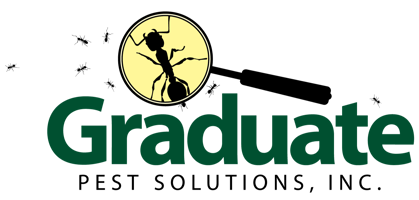The Role of Spring Showers in Pest Proliferation
Spring showers are often welcomed as a refreshing change, nurturing our gardens and revitalizing the earth. However, these rainfalls do more than just hydrate the soil—they play a significant role in pest proliferation. As the rain saturates the ground, it creates a humid environment that is perfect for many insects to thrive. This increase in moisture, coupled with the rising temperatures, sets the stage for a surge in pest activity.
Rainfall contributes to the development of standing water in various areas such as gardens, patios, and even small crevices around the home. These pools of water become breeding grounds for pests such as mosquitoes, which only need a tiny amount of stagnant water to begin their life cycle. As the weather warms and the rain subsides, these insects emerge in large numbers, ready to invade our outdoor spaces.
Furthermore, the lush vegetation that follows a good rain not only attracts beneficial insects but also pests. The abundant plant growth provides an ample food source for insects like aphids, snails, and slugs, which can quickly become nuisances. Therefore, understanding the connection between spring showers and pest activity is essential for homeowners who aim to protect their homes and gardens.
Understanding the Impact of Moisture on Insect Breeding
Moisture is a critical factor in the life cycle of many insects, influencing both their breeding and survival. For instance, mosquitoes, one of the most notorious pests, rely heavily on water to reproduce. Female mosquitoes lay their eggs in standing water, where they hatch into larvae and eventually mature into adults within a week. Thus, more rain means more potential breeding sites and a higher likelihood of mosquito infestations.
Termites are another pest that thrives in moist conditions. These wood-destroying insects are particularly attracted to damp, rotting wood, which is easier for them to consume. After heavy rains, the increased moisture content in wooden structures or debris can attract termites, leading to potential structural damage if not addressed promptly.
Ants, too, are significantly affected by moisture. While they can survive small showers, heavy rainfall can flood their underground nests, forcing them to seek dryer ground. Often, this dry refuge is found in human homes, where ants can become unwelcome guests. Recognizing these patterns helps homeowners take proactive steps in pest prevention.
Common Pests to Watch Out for After Rainstorms
After a rainstorm, several pests become more active, and knowing which ones to watch out for can help in managing their populations. Mosquitoes, as previously mentioned, are a common nuisance post-rain. Their ability to breed quickly in small amounts of water makes them a persistent problem throughout the warmer months.
Termites are another pest to be wary of, especially in areas with significant wooden structures. Their attraction to water-damaged wood means that homes with poor drainage or leaks are at higher risk. Regular inspections can help detect early signs of termite activity, such as discolored wood or small holes.
Ants often infiltrate homes after rainstorms. With their nests flooded, they seek shelter, food, and warmth indoors. Homeowners might notice increased ant trails or nests near entry points, indicating that these pests have moved in. Other insects, like snails and slugs, can also appear more frequently, feeding on the lush vegetation encouraged by the rain.
Practical Pest Prevention Tips for Homeowners
Preventing pest infestations starts with addressing the conditions that allow them to flourish. One effective strategy is to eliminate standing water around your property. Regularly check and empty items that collect rainwater, such as buckets, flower pots, and clogged gutters. This simple action can significantly reduce mosquito breeding sites.
For termite prevention, ensure that all wooden structures are kept dry and well-maintained. Repair leaks and improve drainage to prevent water accumulation around your home’s foundation. Additionally, store firewood and other wooden materials away from your home to minimize termite attraction.
To deter ants, seal any cracks or openings in your home’s exterior. Keeping food stored in airtight containers and maintaining a clean kitchen will also help reduce their food sources. For garden pests like snails and slugs, consider using natural deterrents such as crushed eggshells or diatomaceous earth around your plants.
The Importance of Regular Home Inspections
Regular home inspections play a crucial role in early pest detection and prevention. By routinely examining your property for signs of pest activity, you can address issues before they escalate into full-blown infestations. Look for indicators such as chewed wood, ant trails, or insect droppings, which can signify a pest problem.
Inspections should also focus on areas prone to moisture accumulation, such as basements, attics, and crawl spaces. These areas are often less visible but can harbor significant pest activity if left unchecked. Hiring a professional pest control service for annual inspections can provide peace of mind, as experts can identify and mitigate potential risks more effectively.
Furthermore, maintaining a regular inspection schedule enhances your home’s overall health, protecting it from costly damages and preserving its value. Early intervention is key to managing pest populations and preventing them from becoming a larger issue.
When to Seek Professional Pest Control Assistance
While many pest prevention strategies can be implemented by homeowners, there are times when professional assistance is necessary. If you notice persistent pest activity despite taking preventive measures, it might be time to call in the experts. Professional pest control services have the tools and knowledge to address infestations effectively and safely.
Severe or widespread infestations, such as those involving termites or bed bugs, often require specialized treatment that only professionals can provide. Additionally, if you are dealing with a pest that poses health risks, like certain spiders or rodents, professional intervention ensures that the problem is handled efficiently and safely.
Ultimately, seeking professional pest control assistance can save time, money, and hassle in the long run. By partnering with experts, homeowners can safeguard their properties and enjoy a pest-free environment throughout the year.
YOU MAY ALSO LIKE
These related articles

